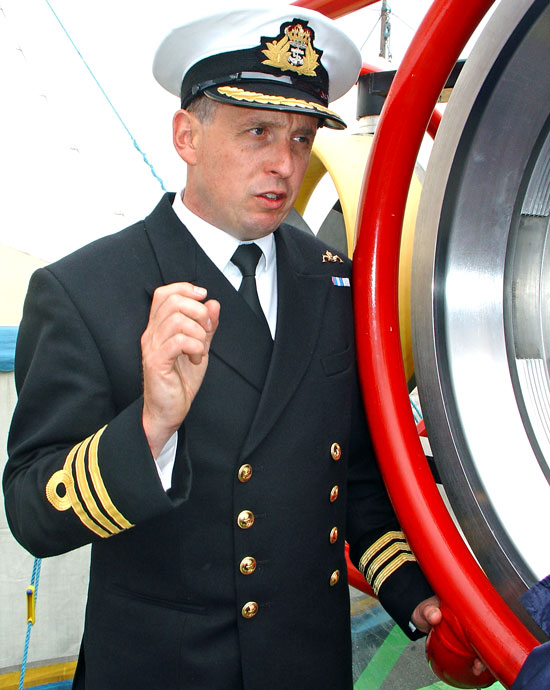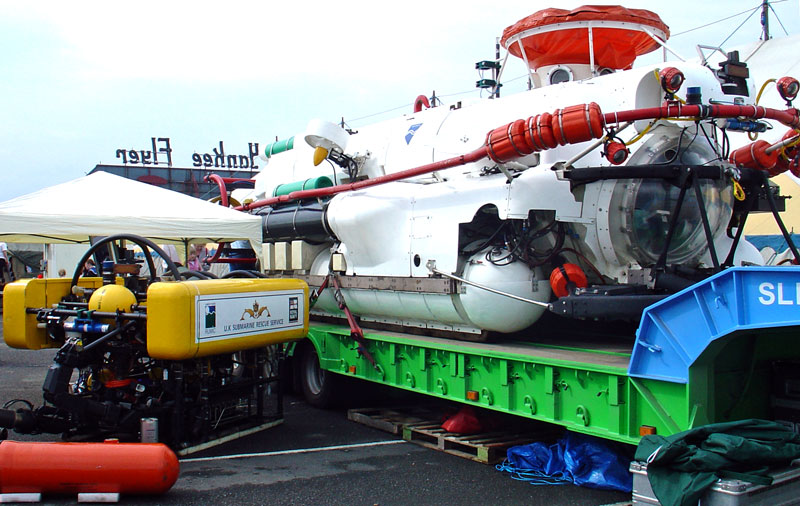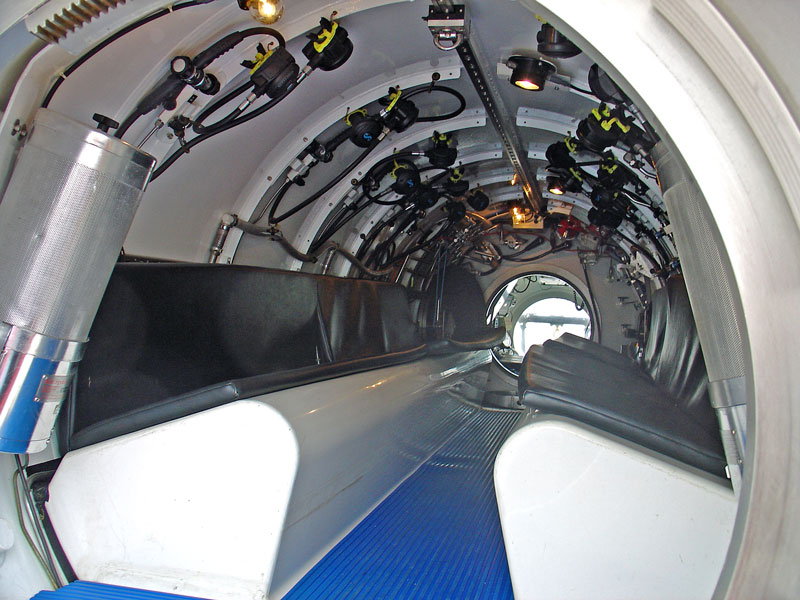A NAVAL officer from Helensburgh led a United Kingdom team which helped rescue seven Russian sailors from a trapped submarine — actions which resulted in thanks from president Vladimir Putin.
The leader of the team was Commander Ian Riches, who lived in Victoria Road and since retiring from the navy has made his home in Perthshire.
The drama began on August 4 2005 when seven Russian submariners were trapped 190 metres down in their Priz mini-submarine — designed for a crew of three — in fishing nets deep in the Western Pacific Ocean, 20 miles off the Siberian seaboard.
 After a failed Russian attempt to save the Priz, the Royal Navy was the first to offer assistance, and Commander Riches was on his way from Faslane — not knowing what to expect, dreading what he might find.
After a failed Russian attempt to save the Priz, the Royal Navy was the first to offer assistance, and Commander Riches was on his way from Faslane — not knowing what to expect, dreading what he might find.
An eternal flight in an RAF C5 transport plane took the rescuers from Prestwick to the Russian naval port of Petropavlovsk, landing on what the pilot later described as what was left of their aviation fumes. Six more hours by sea saw them over the rescue scene.
The rest of the story is the stuff of legend — a race against time and a struggle against the treacherous ocean and the dangerous mess of debris and metal.
A robot device cut the fishing nets, the Russians blew their tanks and Ian wept as the tiny boat bobbed to the surface. The Russians had four hours of oxygen left, and the whole mission had taken just 72 hours.
Commander Riches fought back tears as he described the emotional scenes which unfolded as the Russian crew were saved.
He said he had met members of the media before the mission. “You asked me whether or not I was optimistic. I lied. I said I was. I was scared,” he said.
“But I shouldn’t have been because I have a team of professional men who worked damn hard to ensure that the guys in that Russian submarine got out alive.
“We got there in time, we did the job. It was difficult.
“There was a language barrier. We overcame that because we have the brotherhood of submariners and we worked together with the common aim — that was extremely important as well.
“On that day, that minute the rescue vehicle arrived on the surface, I couldn’t ever explain to you properly the feeling of elation amongst us all.
“It would be wrong of me to say that grown men don’t cry, because I can assure you that a lot of grown men cried that day.”
When the 29-strong team arrived back at Prestwick Airport, the then defence minister, Adam Ingram, led the tributes to the rescuers and said they had achieved “something truly remarkable”.
“This is a wonderful day,” he said. “I think all of us have a big sense of relief that the Russian crew men came out alive and well.
“That’s down to the qualities of the crew that went out to rescue them.
“I just want to pay a very big tribute to all of the people who have been involved in this mission but particularly to the crew themselves.
“They’re very tired. They’ve travelled a long distance. They have achieved something truly remarkable, and all credit to each and every one of them.”
Later that year Vladimir Putin, the Russian president, honoured the courage and professionalism of the British rescue team.
The ceremony, held at Downing Street on the second day of Mr Putin’s British visit, was the first time that Russian medals have been given to foreign military staff.

Russia’s exclusive Order for Maritime Services was awarded to the team leader, Commander Riches, together with Stuart Gold and Peter Nuttall from contractors James Fisher Rumic Ltd, who operated the high-tech Scorpio remote-controlled rescue vehicle.
At the ceremony in No 10’s Pillared Room, Mr Putin said he was honoured to present the medals.
“I would like to thank you for the work done, for the mission accomplished and rescue of the Russian seamen,” he said.
“The work was done quickly, at a good professional level and most importantly it succeeded.”
The following year the Russian sailors, who were taken to hospitals when they were rescued, and their families finally met members of the rescue team and told them of their heartfelt gratitude when they met in Petropavlovsk.
Commander Riches and Stuart Gold travelled to Russia to meet the submariners for the first time, and said they were delighted to get the chance finally to meet the people they saved.
The Commander said: “It closes a situation which had no ending. We had saved these guys, they’re alive but we did not have the chance to shake their han ds — until now.”
ds — until now.”
Stuart Gold said: “It was a disappointment that we could not meet them after the rescue, but this has made up for it.
“The significance of it all really hit home when the young son of one of the crew thanked us for saving his father’s life.”
In an interview published on the Perth website in July 2017 Commander Riches told of his new life after 38 years in the navy.
The father of three said that he was helping the gardening team at Scone Palace, doing some work for the Girl Guides Centre near Burrelton, and acting as a case worker for SSAFA — the Soldiers, Sailors, Air Force and Families Association — assisting veterans and their families with any issues.
Helensburgh artist Neil Macleod lent these photographs which he took in the burgh pier car park of Commander Riches, and the Royal Navy mini rescue submarine and the unmanned Scorpio robot rescue vehicle which were involved in the rescue.




